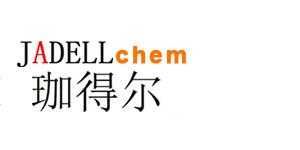Recombinant Human Granulocyte Chemotactic Protein-2/CXCL6 (CHO-expressed) 是具有抗菌活性的细胞因子,与黏膜感染有关。
Synonyms
rHuGCP-2/CXCL6; CKA-3; SCYB6 ; 重组人粒细胞趋化蛋白2 (CHO细胞表达)
Species
HumanSource
CHO Accession
P80162 Gene ID
6372 Molecular Weight
Approximately 9 kDa AA Sequence
VLTELRCTCL RVTLRVNPKT IGKLQVFPAG PQCSKVEVVA SLKNGKQVCL DPEAPFLKKV IQKILDSGNK KN Biological Activity
The ED50 is <0.8 μg/mL as measured by CHO-K1/Gα15/hCXCR2 cells (human Gα15 and human CXCR2 stably expressed in CHO-K1 cells). Appearance
Lyophilized powder. Formulation
Lyophilized after extensive dialysis against PBS. Endotoxin Level
<0.2 EU/μg, determined by LAL method. Reconstitution
Reconstitute the lyophilized recombinant Human Granulocyte Chemotactic Protein-2/CXCL6 (CHO-expressed) (rHuGCP-2/CXCL6) to 100 μg/mL using ddH2O or PBS. Storage & Stability
Lyophilized recombinant Human Granulocyte Chemotactic Protein-2/CXCL6 (CHO-expressed) (rHuGCP-2/CXCL6) is stored at -20°C. After reconstitution, it is stable at 4°C for 1 week or -20°C for longer. It is recommended to freeze aliquots at -20°C or -80°C for extended storage. Shipping
Room temperature in continental US; may vary elsewhere. Background
Human granulocyte chemotactic protein 2 (GCP-2)/CXCL6 is an ELR-positive CXC chemokine with a length of 77 amino acids. CXCL6 is a CXC chemokine expressed by macrophages and epithelial and mesenchymal cells during inflammation. In killed bacteria, GCP-2/CXCL6 associates with bacterial surfaces, which showed membrane disruption and leakage. In the case of leukocytes, GCP-2/CXCL6 binding to the receptors causes cellular activation, chemotaxis, and sometimes, depending on the context, execution of cytotoxic effector functions. Activation of endothelial cells by GCP-2/CXCL6 causes a mitogenic response, resulting in angiogenesis[1]. |



